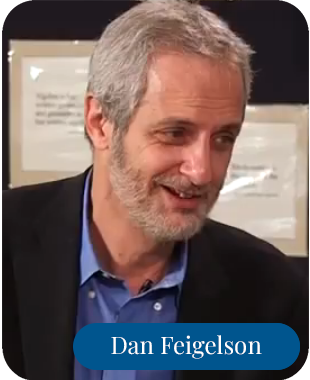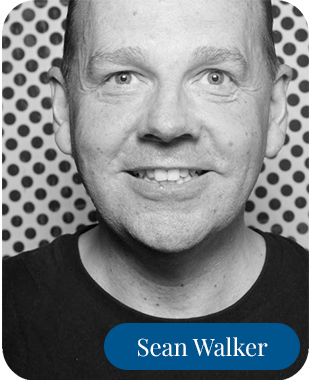 |
|
| Overview |
| The rapid improvement in the ability of large language models such as Chat-GPT to produce sophisticated responses to natural language questions has led many to claim that artificial intelligence (AI) will revolutionize education. AI will, undoubtedly have profound implications for schools, teachers, and students, but there are also significant technical and ethical challenges that need to be addressed if AI is to improve education. In this 5-session course, course, Dylan Wiliam will outline how large language models work, explore how AI will impact the world of work and go on to show how AI-based tools will change schools and teaching. |
| Session 1: Artificial Intelligence: Changing work and changing education |
| In this introductory session, participants will learn about the different forms of artificial intelligence and how they work, in order to provide strong mental models to anticipate strengths and pitfalls (context windows, "hallucinations", brittleness to phrasing). The session will also discuss potential changes to the world of work, focusing in particular on the "jagged frontier" of AI use, the uneven boundary where AI excels at some tasks and fails at others. The session will conclude with a discussion of how changes that AI produces, particularly in the world of work, will change the purpose of education. |
| Session 2: Artificial Intelligence: Administration and planning |
| The second session begins by discussing how schools and teachers can use AI, both to simplify administrative tasks and to make their teaching more effective while also reducing workload. Participants will learn how to prompt AI to produce responses for course and lesson plans that are consistent with principles of cognitive psychology, and find out how to generate resources that anticipate student misconceptions. This session will also review the emerging research evidence about the effectiveness of Large Language Models as tutors, and explore how far AI can help personalize teaching. |
| Session 3: AI and teaching |
| The third session builds on the second by exploring the different roles that large language models can play in teaching, and how teachers can use AI to support the integration of formative assessment into day-to-day teaching. This includes, for example, generating model answers at different quality levels, creating varied examples and non-examples, surfacing common misconceptions, and drafting rubrics or success criteria that students can actually use, so that teachers can spend more time interpreting evidence of learning. AI also has considerable potential for helping students become more effective at managing their own learning. |
| Session 4: AI and assessment |
| The fourth session focuses on how AI will change how we assess student work. Some of these will be negative, in that, despite the assurances of those selling AI detection tools, at least for the foreseeable future, it will almost certainly be impossible to detect AI use, and so the kinds of assessments we use will need to change. However AI also makes the assessment of authentic work less expensive, so the range of ways we can assess are students will expand drastically, without increasing teacher workload.The session will also explore whether AI can provide meaningful and useful feedback to students. The session will conclude by outlining how teachers can use AI to improve their own formative assessment practice. |
| Session 5: AI and the broader context: Ethical, moral and practical issues |
In the final session, the content of the earlier sessions will be placed in a broader context, examining issues of privacy, bias, academic integrity and the conditions that make adoption safe and sustainable. AI-based tools present significant ethical challenges in educational settings, including the increased surveillance of students, the tendency of such tools to be developed with data on neuro-typical students, rendering them less useful, or even harmful, for neuro-diverse students, with similar problems for students from minorities. The fact that the most sophisticated models are not "inspectable", so the reasons for the choices made are not open to scrutiny, makes such issues even harder to address. Participants will explore how to effectively develop and implement policies and practices regarding the use of AI, focusing in particular on how AI can be used to improve student learning in ways that are effective, ethical, and sustainable.
Looking wider, we will return to the issue of how the increasing adoption of powerful AI changes what schools are for, as more and more of the work currently done by humans-particularly those done by those with the highest levels of academic credentials-are done by machines. Put bluntly, do we need to prepare our students for a world without work?
Ultimately, even the most powerful tools are unlikely to replace teachers, but-like most technology-they will allow teachers to spend more time doing things that only humans can do, and thus have the possibility to produce substantial improvements in education. |
| |
| About Dylan Wiliam |
| Dylan Wiliam is one of the world's leading authorities on the ways that assessment can be used to improve student learning and has authored or co-authored over 300 articles, books, and book chapters on education. After 7 years teaching English, mathematics and science in urban secondary schools in London, he joined Chelsea College, University of London, which later merged with King's College London. During his time at King's College London, he ran the mathematics teacher education programme, co-ordinated a large scale testing programme, served for five years as Dean of the School of Education and from 2001 to 2003, was Assistant Principal of the College. In 2003 he moved to the United States, to take up the post of Senior Research Director at the Educational Testing Service in Princeton, New Jersey, and in 2006 returned to the UK as Deputy Director of the Institute of Education, University of London. Since 2010 he has worked as an independent consultant, advising schools, districts, and regional and national governments on how education can be improved, but he retains his link with the University of London as Emeritus Professor of Educational Assessment. |
| Dates & Timings |
March 3rd, 5th, 17th, 19th & 31st, 2026
3rd, 5th March 2026
New York 7:00 am | London 12:00 pm | Zurich 1:00 pm | Dubai 4:00 pm
India 5:30 pm | Hong Kong 8:00 pm | Melbourne 11:00 pm
17th, 19th March 2026
New York 7:00 am | London 11:00 am | Zurich 12:00 pm | Dubai 3:00 pm
India 4:30 pm | Hong Kong 7:00 pm | Melbourne 10:00 pm
31st March 2026
New York 7:00 am | London 12:00 pm | Zurich 1:00 pm | Dubai 3:00 pm
India 4:30 pm | Hong Kong 7:00 pm | Melbourne 10:00 pm
Each Session is for 90 minutes.
This workshop will be recorded.
Please click here to check your time for the workshop |
| Investment |
USD 600 Closing Date 1st March 2026
Group Discount of USD 500 Per Participant for a Group of 20 or more
Includes: Certificate of Participation for 12 Professional Development Hours. |
 |
|
|
| |
| Upcoming Workshops |
 |
| Practical Punctuation: Teaching Writing Conventions So They Stick |
| Even the most successful writing workshops are often inconsistent in their teaching of punctuation. |
 March 5th & 12th, 2026 March 5th & 12th, 2026 |
 USD 275 Closing Date 1st March 2026 USD 275 Closing Date 1st March 2026 |
|
 |
|
| |
| |
 |
| Mathematising with Meaning: Playful Paths to Mathematical Inquiry for Young Learners |
| Learning mathematics for 3-6 year olds can often be reduced to worksheets, cute activities and rote learning. |
 March 14th, 21st, 28th & April 11th, 2026 March 14th, 21st, 28th & April 11th, 2026 |
 USD 400 USD 400 |
|
 |
|
| |
| |
 |
| What Do We Teach After We Teach the Science Of Reading? Impactful Reading Instruction for Students Grades 3-8 |
| In recent years, much of the conversation around literacy instruction has focused on the Science of Reading. But after students have learned to decode and read with fluency, how do we help them continue to grow as readers? |
 April 14th, 16th, 21st & 23rd, 2026 April 14th, 16th, 21st & 23rd, 2026 |
 USD 450 Closing Date 1st April 2026 USD 450 Closing Date 1st April 2026 |
|
 |
|
| |
| |
| |
|
|
|
|
|
